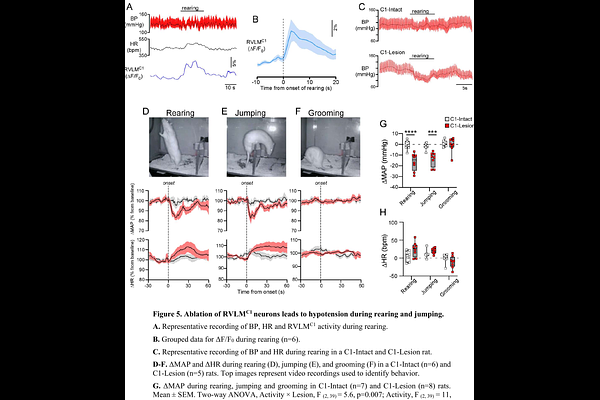Control of Blood Pressure Variability Across Behavioral States by Brainstem Adrenergic Neurons

Control of Blood Pressure Variability Across Behavioral States by Brainstem Adrenergic Neurons
Souza, G. M. P. R.; Thakkalapally, H.; Berry, F. E.; Atongazi, U. M.; Stornetta, D. S.; Abbott, S. B. G.
AbstractShort-term blood pressure (BP) variability is increasingly recognized as an independent predictor of cardiovascular and cerebrovascular risk, yet the central mechanisms that govern this variability, particularly across behavioral states, remain poorly defined. In this study, we investigated the role of C1 adrenergic neurons in the rostral ventrolateral medulla (RVLMC1) in the short-term BP regulation during sleep-wake transitions and physical activity in freely behaving rats. Using genetically targeted fiber photometry, we show that RVLMC1 neurons exhibit state-dependent activity, with rapid activation during arousal from non-REM sleep, sustained activity in REM sleep, and further recruitment during physical activity. We further demonstrate that baroreflex input is essential for the dynamic response of RVLMC1 neurons to pharmacological manipulations of BP and transitions to REM sleep. Strikingly, selective ablation of RVLMC1 neurons did not affect mean BP but caused pronounced instability during arousal and movement, underscoring their role in buffering BP fluctuations. These findings demonstrate that RVLMC1 neurons integrate arousal-related central drive with baroreceptor feedback to stabilize BP during changes in behavioral state. These findings suggest that the disruption of RVLMC1 neurons could underlie increased BP variability observed in pathological conditions, such as multiple system atrophy, even when mean BP is preserved.